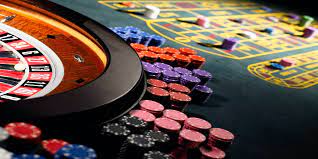Casinos have captivated human imagination for centuries, evolving from rudimentary games of chance to sophisticated entertainment hubs. The roots of link slot gacor gaming can be traced back to ancient civilizations where various forms of gambling were practiced. In ancient China, the first recorded game of chance was keno, used to raise funds for state projects. Meanwhile, in ancient Rome, dice games were popular among soldiers and citizens alike.
The Birth of Modern Casinos
The concept of the casino as we understand it today began to take shape in the 17th century. The term “casino” itself is derived from the Italian word “casa,” meaning house. Originally, it referred to small houses or villas where people would gather to play games of chance. The first official casino, the Ridotto, opened its doors in Venice in 1638. This establishment was designed to control gambling and provide a regulated environment for players.
The Rise of Casino Culture
The 19th century marked a significant shift in casino culture. The Monte Carlo Casino, established in Monaco in 1863, became synonymous with luxury and opulence. It was here that the roulette wheel, as we know it, gained prominence. The casino’s influence extended beyond gaming; it became a symbol of high society and extravagance.
In the United States, casinos started to gain traction in the early 20th century. Las Vegas, once a modest desert town, transformed into the casino capital of the world. The legalization of gambling in Nevada in 1931 set the stage for the rise of Las Vegas Strip, where grand casinos like The Flamingo and Caesars Palace began to define the city’s reputation.
The Digital Revolution
The late 20th and early 21st centuries brought a new dimension to the casino experience: online gaming. The advent of the internet allowed casinos to transcend physical boundaries and reach a global audience. Online platforms offered a wide range of games, from classic poker and blackjack to innovative slots and virtual sports.
The digital revolution didn’t just change how people play; it also influenced the development of new technologies. Virtual reality (VR) and augmented reality (AR) have begun to play a role in creating immersive casino experiences. These technologies promise to blend the thrill of physical casinos with the convenience of online play, offering players a new level of interaction and engagement.
The Future of Casinos
As we look to the future, casinos are poised to continue evolving in exciting ways. Advances in artificial intelligence (AI) are already being used to enhance security, personalize gaming experiences, and offer more sophisticated game designs. Additionally, the integration of blockchain technology is promising to increase transparency and fairness in online gaming.
Sustainability is also becoming a key focus. Many casinos are adopting eco-friendly practices and seeking ways to reduce their environmental impact. From energy-efficient buildings to waste reduction initiatives, the casino industry is increasingly aware of its role in promoting environmental responsibility.
Conclusion
The journey of casinos from ancient gaming houses to modern entertainment hubs is a testament to their enduring appeal and adaptability. As technology and societal norms continue to evolve, casinos will undoubtedly continue to innovate and captivate, offering new ways for people to experience the thrill of chance and the allure of luxury. Whether through the glamour of Las Vegas, the tradition of Monte Carlo, or the cutting-edge excitement of online platforms, the world of casinos remains as dynamic and fascinating as ever.

